Part II
One of the biggest casualties of the administration’s massive crackdown against journalists Kashmir is that many important stories remain hidden or half-told. There are hardly an investigative stories of the disempowered, issues related to environment, global warming, climate change, gender, child rights and civil liberties.
What are these stories? Why have they been forgotten in the ‘new order’ of Naya Kashmir?
Here are some of them:
The Forgotten Stories I: Ecological Impact of Amarnath Yatra
The administration advertised the 2022 annual Hindu pilgrimage (from 30 June to 11 August)to the Amarnath cave as one of the biggest political events. Earlier, this pilgrimage used to be a relatively low-key fortnight-long affair with a few thousand pilgrims paying a symbolic visit to the cave to worship the Shiva Lingam, a stalagmite formation in a cave located at about 17,000 feet in Anantnag district of southern Kashmir.
The holy Hindu pilgrimage was marketed as a normalcy symbol post-August 5, 2019. What remains untold is how this pilgrimage has been happening with due support of the local populace since many a decade. Former chief minister Mehbooba Mufti, who is also the president of the People’s Democratic Party (PDP), on 13 July 2022 accused the Indian Hindu nationalist Bharatiya Janata Party (BJP) government of making the Amarnath pilgrimage a “political issue” soon after 16 Hindu pilgrims were left dead and 40 others missing due to flash floods, cloudbursts and inclement weather near the holy cave.
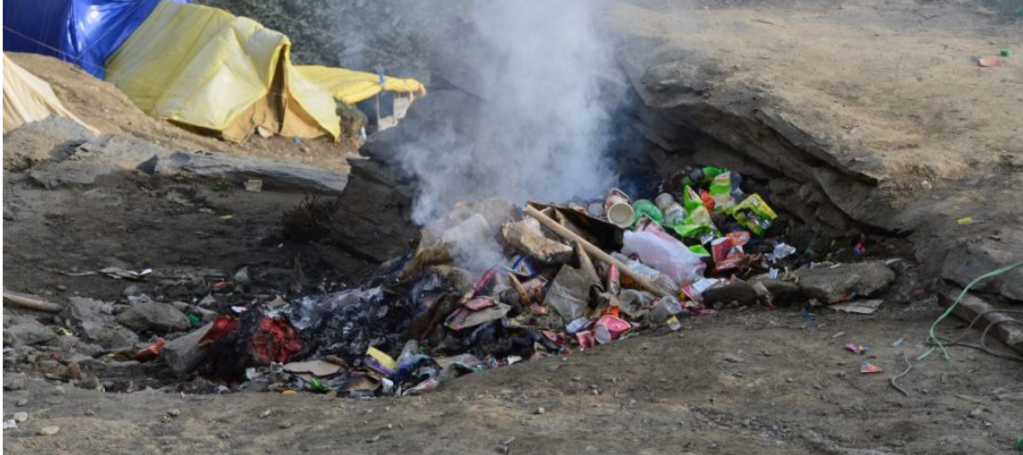
While environmental conditions do not permit more than 5,000 pilgrims a day to visit the cave, the number of pilgrims increased manifold, to more than 300,000, thus putting unnecessary burden on the ecologically fragile zones of Pahalgam and Sonmarg.
Previously, the erstwhile state’s State Pollution Control Board had raised concerns about the impact of the pilgrimage, its duration and number of pilgrims, on the ecology of the fragile Himalayan region.
Environmentalists too had voiced similar concerns about the impact on the fragile ecology and environment in the region, at the cave and its tracks from both the Baltal and Pahalgam axis in central and southern parts of Kashmir respectively. In February 2009, then Governor of Jammu & Kashmir N N Vohra had constituted a three-member sub-committee of the Amarnath Shrine Board to formulate and implement a strategy to address the environmental and ecological concerns. Yet, well-researched stories on the environmental impact do not make their way into the media.
Forgotten Stories II: Encounter killings
Journalists find it difficult to go beyond the official narrative and police statements and investigate such stories even when there have been many proven cases of extrajudicial killings of civilians. Journalists are not able to investigate and report stories of demolition of residential houses during alleged gunfights between government forces and militants or the denial of dignified burial to the killed civilians and militants in various incidents.While incidents like Pathribal in south Kashmir, Machill, Amshipora in south Kashmir’s Shopian district and Hyderpora area in Srinagar etc are still fresh in people’s memory, other incidents continue unabated.
Citing law and order situation and invoking COVID19 protocols, the J&K administration has for the past three years been refusing to hand over bodies of suspected militants and their alleged sympathisers to their families for proper burial. Hundreds, including civilians, have been denied dignified burial and their bodies dumped unceremoniously in remote parts of Uri, Handwara and Sonmarg in the northern and central parts of Kashmir.
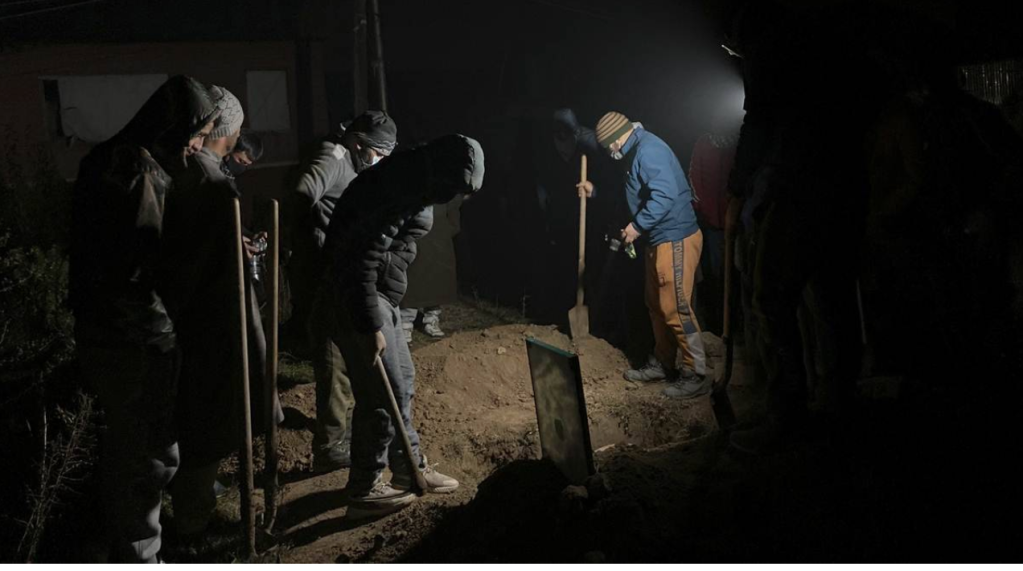
In November 2021, government forces claimed to have killed four militants (‘militant associates’ and ‘hybrid militants’) in Srinagar’s Hyderpora locality but the three families came forward to protest and reject the official claim. The administration was forced to exhume the bodies of two civilians killed in the shootout and erroneously dubbed militant associates. A magisterial inquiry was ordered after protests from the families of three slain civilians, namely Mohammad Altaf Bhat, a businessman; Dr Mudassir Gul, a dentist; Amir Magray, a domestic help. Now a division bench of J&K High Court has directed the authorities to allow family of Magray, a civilian from Banihal, to perform funeral rites at the graveyard in Handwara. The bench also directed the authorities to pay compensation of INR 500,000 (US $ 6500) to the victim family.
In April 2022, the Indian Army initiated a general court martial against Captain Bhoopendra Singh, charged with the killing of three boys, all labourers, from Rajouri in Jammu province on 18 July 2020. Then, the Indian Army claimed that soldiers of 62 Rashtriya Rifles had killed three ‘unidentified militants’ in a gun battle in Amshipora, a remote village in south Kashmir’s Shopian district. However, it turned out that the three were actually labourers – Mohammad Abrar (16), Imtiyaz Ahmad (20), and Abrar Ahmad (25)—all from different villages in Rajouri. Their bodies were buried hurriedly in the Kashmir Valley. The protesting families approached the local police and its preliminary inquiry had prima facie concluded that the three slain were civilians, the authorities allowed exhumation of their bodies and returned them to their families for proper burial.
Despite this clear instance of a staged killing, the abduction and disappearances of youth continue unabated. On December 15, 2022, Abdul Rashid Dar, a young man from Kupwara, a remote frontier district in north Kashmir, was detained by the Indian Army. He went missing since then and his family protested against his detention and subsequent ‘disappearance’. According to the Indian Army, the missing person ‘fled’ from their custody, a claim flatly rejected by the family. Thorough follow-up of these stories is nigh impossible due to stringent curbs on the media.
Forgotten Stories III : Impact of repealed laws on Civil Society
Moreover, the administration has repealed seven rights panels in accordance with J&K Reorganisation Act 2019, which came into effect on October 31, 2019. Three of the seven repealed State Commissions dealt exclusively with human rights (J&K State Human Rights Commission), rights of women (J&K State Women’s Commission) and rights of children and persons with disabilities. Another panel to be repealed was the J&K State Accountability Commission. In such vacuum everyone has been suffering on account of grievance redress.
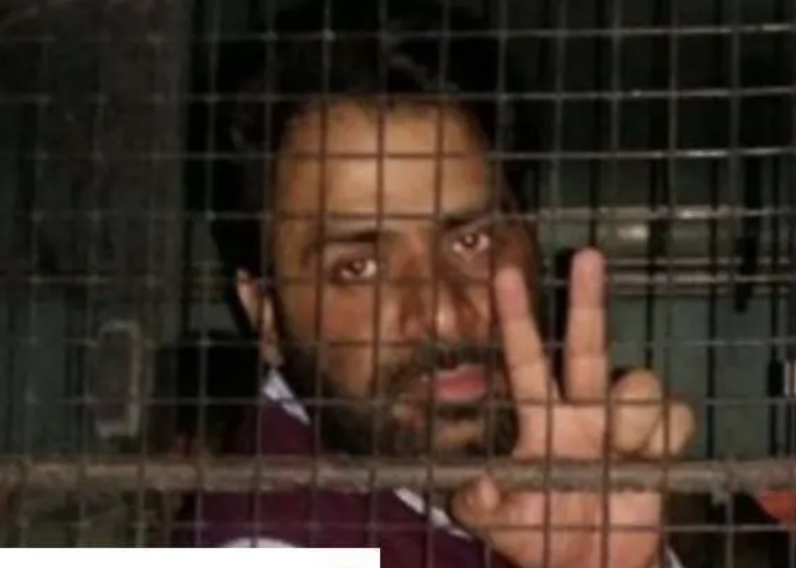
Independent human rights and civil society coalitions such as J&K Coalition of Civil Society headed by its incarcerated coordinator Khurram Parvez have been made redundant. Likewise, political parties of various ideological hues, civil society groups, J&K High Court Bar Association, Kashmir Chamber of Commerce and Industries and the Kashmir Press Club (KPC), have also been rendered defunct.
The authorities deregistered the erstwhile KPC after a failed attempt by a small group of pro-government journalists to capture the club by force, in presence of a heavy posse of local police and paramilitary forces personnel, in January 2020. Pro-government journalists had appointed themselves as the new “interim body”.
In another move, the local administration disallowed the due elections of the Kashmir High Court Bar Association, which the lawyers’ body says is an attempt to throttle voices of the legal fraternity.
Forgotten Stories IV: Effect on women, children
Besides the stories of ecological disaster, environmental concerns, suspension of civil liberties and media freedom, the stories of women and children also remain untold. In such a hopeless situation women and children become the casualty. In May 2022, the Forum for Human Rights in Jammu and Kashmir, a civil rights body headed by its Convenors Gopal Krishna Pillai and Justice (retired) Ajit Prakash Shah, released a special report examining issues pertaining to child rights in J&K.

The report painted an alarming picture of Kashmiri children, saying that the tremendous changes due to the abrogation of Article 370 of the Indian Constitution and the Covid19 pandemic have been “most keenly felt by children.” The report says that the violent conflict in Kashmir has adversely impacted juvenile justice, children’s mental health and their education. “Children born into conflict-ridden complex state of Jammu and Kashmir are powerless in determining their own circumstances and cannot be punished for a situation they did not create. They are not militants by birth, but may grow into militancy due to the paucity of options available to them. It is imperative that they are no longer forced to bear the brunt of the police and the armed forces or the militants,” it says in conclusion.
The prolonged curfews and shutdowns, the report says, have had negative impact on children’s education. Due to the suspension of Internet services or low-speed internet in Kashmir the children could not fully benefit from the online classes during the pandemic.
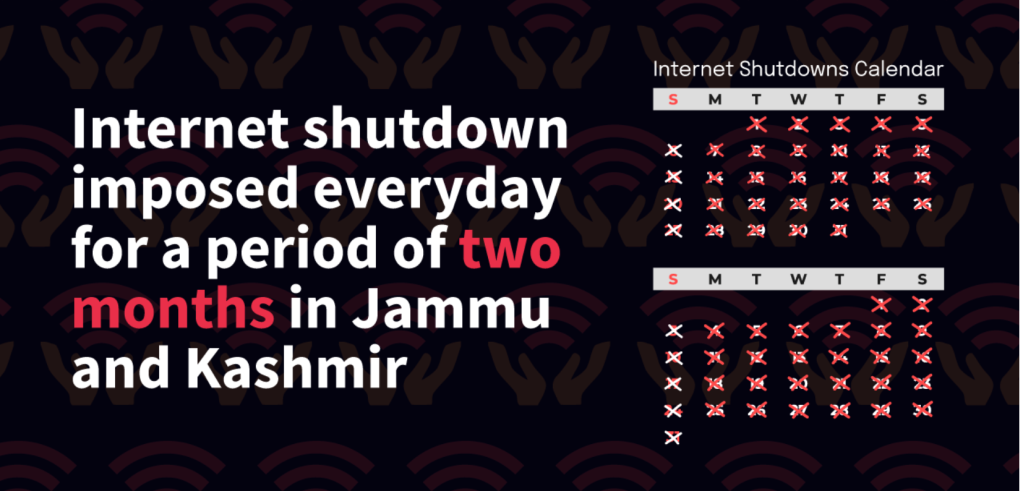
Access Now, an NGO which tracks internet shutdowns in India, described prolonged internet shutdowns in J&K as“The pervasive atmosphere of violence, constant military presence, and disturbances created by militant forces have an adverse impact on children. It meddles with the process of regular socialisation with peers, stability in the family, and a consistent school routine, which previously acted as anchors in support of children,” the report says, adding that “Feelings of disempowerment, insecurity, and fear can seep down into the generations to come. The Covid19 lockdowns and closure of schools has further exacerbated the lack of mental wellbeing of children.”
Many private schools run under Falah-e-Aam Trust (Peoples’ Welfare Trust) have been arbitrarily shut and deregistered by the administration in the middle of the academic session 2022, leaving thousands of children and teaching and non-teaching staff at the crossroads.
Journalists who struggle to tell these and other stories can only draw inspiration from Elie Wiesel, a Holocaust survivor, who won the Nobel Peace Prize for Night. In his Nobel Prize acceptance speech in Oslo on December 10, 1986, Wiesel said how he “tried to keep memory alive” and tried “to fight those who would forget”.
(This is Part II of a special report on the media in Kashmir published in collaboration with the International Press Institute’s project on fighting attacks on journalists in South Asia. The author chose to remain anonymous).

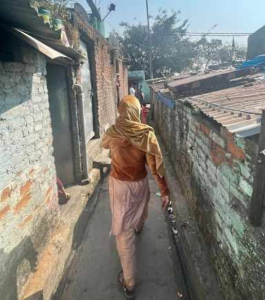
2 thoughts on “New Tales in Kashmir’s New Order : The Forgotten Stories”